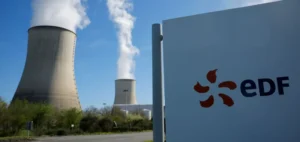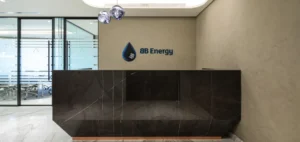T1 Energy Inc. released its financial results for the second quarter of 2025, reporting a net loss of $32.8 million, or $0.21 per diluted share. Despite a context marked by commercial and regulatory uncertainties, the company maintains its full-year EBITDA guidance of $25 to $50 million.
As part of its reshoring strategy, T1 Energy entered into an agreement with Corning Incorporated for the supply of solar wafers manufactured in Michigan. This partnership is intended to support T1’s compliance with Free of Exigence of Concern (FEOC) requirements under the One Big Beautiful Bill (OBBB) legislation and to strengthen a domestic supply chain for photovoltaic modules.
Sales fully booked for 2025 after 437 MW contract
The company also signed a 437-megawatt sales contract with a major U.S. utility. Deliveries are scheduled to begin in the third quarter of 2025. This agreement enables T1 to fully sell out its 2025 production from the G1_Dallas site, based on the lower end of its annual production plan of 2.6 gigawatts.
Since the adoption of OBBB, the company has reported intensified commercial interest. Growing demand, particularly from large-scale artificial intelligence projects, has boosted interest in T1’s domestically produced modules and accelerated negotiations for offtake agreements.
G2_Austin deployment and financing structure
The G2_Austin project, with a planned capacity of 5 GW, currently represents the largest investment in the U.S. polysilicon solar supply chain, according to Rystad Energy. T1 expects construction to start between the third and fourth quarters of 2025. The project will be developed in two phases of 2.5 GW each.
Financing for G2_Austin involves multiple instruments: structured project loans from a consortium of banks, mezzanine financing, customer contract deposits, and potential strategic equity participation. Yates Construction was selected for site preparation work, complementing SSOE Group, which has been providing engineering services since December 2024. A long-term tax abatement has also been secured from Milam County, Texas.
Regulatory alignment and administrative decisions
T1 identifies FEOC compliance as a strategic priority to qualify for Section 45X production tax credits. The company states that it is aligning its operating model and supply chain strategy with these regulatory requirements to secure eligibility.
Regarding its attempted transaction with Trina Solar, T1 received notification from the Committee on Foreign Investment in the United States (CFIUS) that the transaction was not subject to its jurisdiction. This administrative clarification removes a potential barrier to future partnerships or joint ventures.
Industrial performance and business refocus
The G1_Dallas facility surpassed 1 GW of cumulative production during the second quarter. As of August 2025, T1 had produced more than 1.2 GW of modules, confirming its annual production targets. This operational momentum reinforces the company’s ability to fulfill contractual commitments.
At the same time, T1 continues to refocus its operations, including accelerating its exit from European activities. A strategy is underway to repurpose the Giga Arctic site, currently inactive, with potential conversion into a data center or artificial intelligence infrastructure hub, subject to restored power grid access by the Norwegian operator.
Financial outlook and risk management
T1 reaffirms its EBITDA guidance of $25 to $50 million for 2025 but anticipates increased risk of trending toward the lower bound. Pressures include antidumping duties (AD/CVD), reciprocal tariffs, supply chain disruptions, and delays from customers securing advance purchases.
The company does not expect new merchant sales contracts in the second half of 2025. However, it maintains projections of annual run-rate EBITDA between $650 and $700 million, based on optimized output from both G1_Dallas and G2_Austin.






















